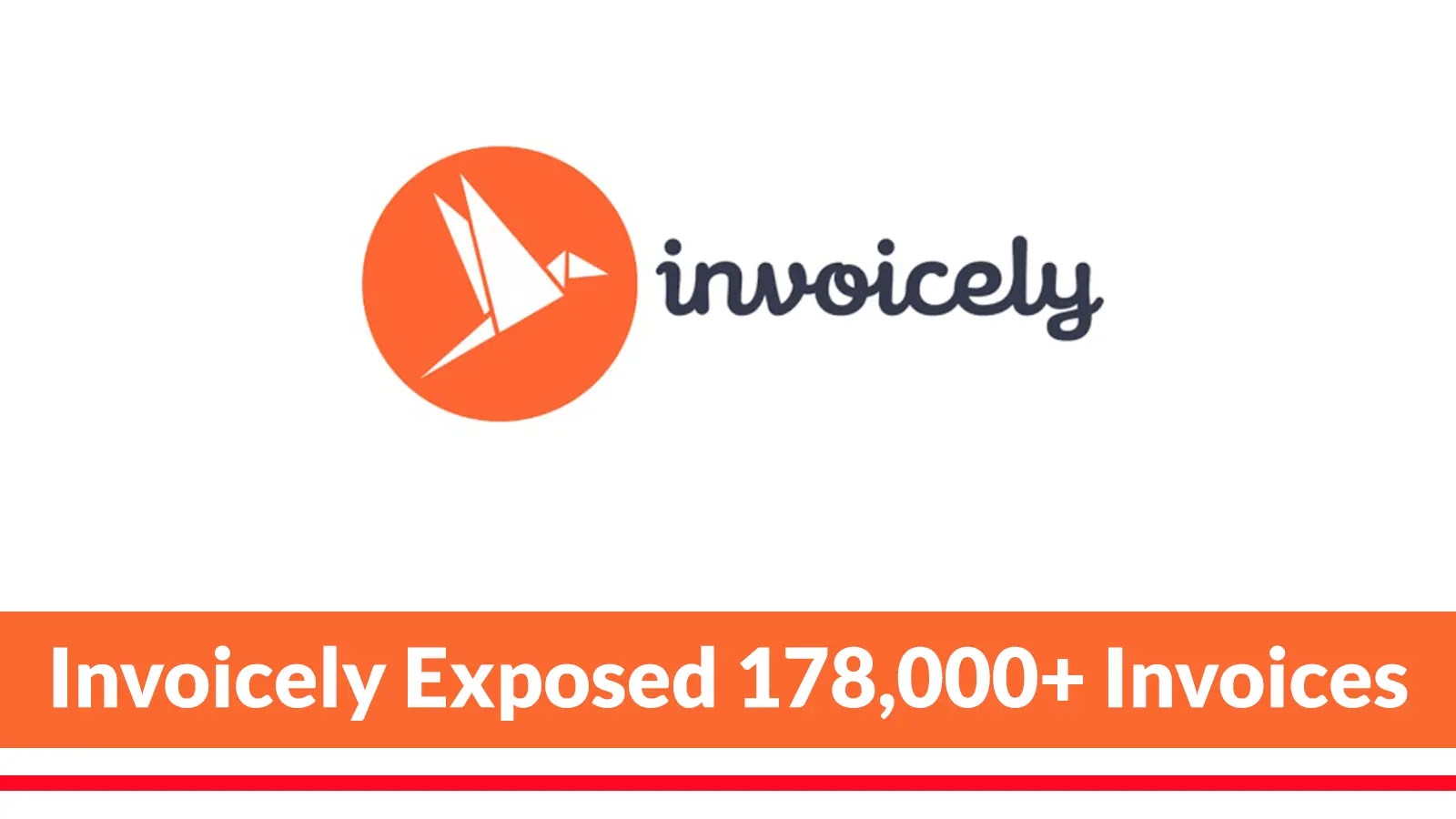
178,000+ Invoices With Customers Personal Records Exposes from Invoice Platform Invoicely
A disturbing revelation has sent ripples through the digital invoicing ecosystem: the unearthing of a publicly accessible database managed by Invoicely, a prominent invoicing and billing platform. This exposure has potentially compromised the personal and financial data of hundreds of thousands of individuals and businesses globally. The incident underscores the critical importance of robust data security and the potential downstream impact of even seemingly minor misconfigurations.
The Invoicely Data Breach: A Deep Dive
In early October 2025, cybersecurity researcher Jeremiah Fowler made a critical discovery. He identified an unsecured database belonging to Invoicely, a Vienna-based invoicing and billing platform relied upon by over 250,000 businesses worldwide. This database, left publicly accessible, contained a staggering 178,519 files. These files, in various formats including XLSX, CSV, PDF, and image files, were replete with sensitive personal and financial information.
The contents of these exposed documents painted a grim picture. They included a vast array of invoices, scanned checks, and other transactional records. For individuals and businesses using Invoicely, this meant their names, addresses, contact details, financial transaction details, and potentially bank information were exposed to anyone with the knowledge to access the database. The sheer volume and sensitivity of the exposed data highlight a significant lapse in data protection protocols.
Scope and Impact of the Compromise
The scale of the Invoicely data exposure is considerable. With over 178,000 files containing customer records, the potential for malicious exploitation is immense. Cybercriminals could leverage this information for a variety of nefarious activities, including:
- Identity Theft: Personal details like names, addresses, and dates of birth (if present) are prime targets for identity theft schemes.
- Phishing and Social Engineering: Detailed invoicing information allows attackers to craft highly convincing phishing emails, impersonating legitimate businesses or financial institutions to trick recipients into revealing further sensitive data or making fraudulent payments.
- Financial Fraud: Exposed bank details, even if partial, could be used to facilitate fraudulent transactions or create fake accounts.
- Business Espionage: Competitors could potentially gain access to sensitive business dealings and client lists, leading to unfair competitive advantages.
The fact that Invoicely serves a global clientele means the impact of this breach extends across multiple jurisdictions, potentially subjecting affected businesses and individuals to varying regulatory implications, such as GDPR in Europe or state-specific data breach notification laws in the US.
Technical Analysis of the Vulnerability
While the specific technical details of how the database became publicly accessible are not fully disclosed in the initial report, such incidents commonly stem from misconfigurations in cloud storage environments or database settings. Common culprits include:
- Improperly Configured Cloud Storage Buckets: Often, S3 buckets or similar cloud storage solutions are left with default public access settings or incorrectly configured access control lists (ACLs).
- Exposed Database Instances: Development or staging databases might be inadvertently exposed to the internet without proper authentication or firewall rules.
- API Misconfigurations: APIs designed for internal use might be exposed externally without adequate security measures, allowing unauthorized access to data.
The critical vulnerability here was the lack of proper access control and authentication, turning a private data repository into a public resource. This isn’t a complex zero-day exploit, but rather a fundamental failure in basic security hygiene. There is no specific CVE associated with this misconfiguration, as it represents a broader class of operational security failures rather than a software vulnerability amenable to a CVE designation.
Remediation Actions for Invoicely & Affected Users
For Invoicely, immediate and thorough remediation is paramount. For users of Invoicely, proactive steps are essential to mitigate potential harm. There is no specific CVE for this type of misconfiguration.
For Invoicely:
- Database Securitization: Immediately restrict public access to all databases containing sensitive customer information. Implement strict access control policies, requiring robust authentication and authorization.
- Security Audit: Conduct a comprehensive security audit of their entire infrastructure, focusing on cloud configurations, API endpoints, and database access controls.
- Data Breach Notification: Comply with all applicable data breach notification laws and inform affected customers and regulatory bodies without delay.
- Enhanced Monitoring: Implement continuous monitoring for unusual access patterns or data exfiltration attempts.
- Security Best Practices: Review and update internal security protocols, conduct regular employee training on data security best practices, and perform penetration testing.
For Affected Users and Businesses:
- Monitor Financial Accounts: Regularly scrutinize bank statements and credit card activity for any unauthorized transactions. Consider placing fraud alerts or credit freezes.
- Be Wary of Phishing Attempts: Exercise extreme caution with unsolicited emails, calls, or messages, especially those requesting personal or financial information. Verify the legitimacy of senders independently.
- Update Passwords: Change passwords for Invoicely and any other services where similar credentials might have been used. Implement strong, unique passwords and enable multi-factor authentication (MFA) wherever possible.
- Review Business Practices: Evaluate internal policies regarding vendor security and data sharing. Ensure any third-party services handling sensitive data adhere to strict security standards.
- Consider Identity Protection Services: Individuals may opt for identity theft protection services that monitor for suspicious activity related to their personal information.
The Broader Implications for Data Privacy
The Invoicely incident serves as a stark reminder of the fragile nature of data privacy in an increasingly digitized world. It underscores that even widely used and trusted platforms can fall victim to fundamental security oversights. Organizations that handle personal and financial data have an ethical and legal obligation to protect that data with the utmost diligence.
This event should prompt businesses to critically evaluate their own third-party vendor risks. Relying on external platforms for core operations, such as invoicing and billing, necessitates a thorough vetting process and ongoing oversight of their security posture. Customers, in turn, must remain vigilant and proactive in protecting their personal information, recognizing that even when data is entrusted to a service, its security hinges on the provider’s adherence to stringent cybersecurity measures.
Conclusion
The exposure of over 178,000 invoices and associated customer records from the Invoicely platform is a significant cybersecurity event that highlights critical vulnerabilities in data management. While Invoicely has likely taken steps to secure the database since its discovery, the long-term repercussions for affected individuals and businesses could be substantial. This incident is a powerful testament to the necessity of relentless vigilance, robust security configurations, and a proactive approach to data protection across all digital platforms.





